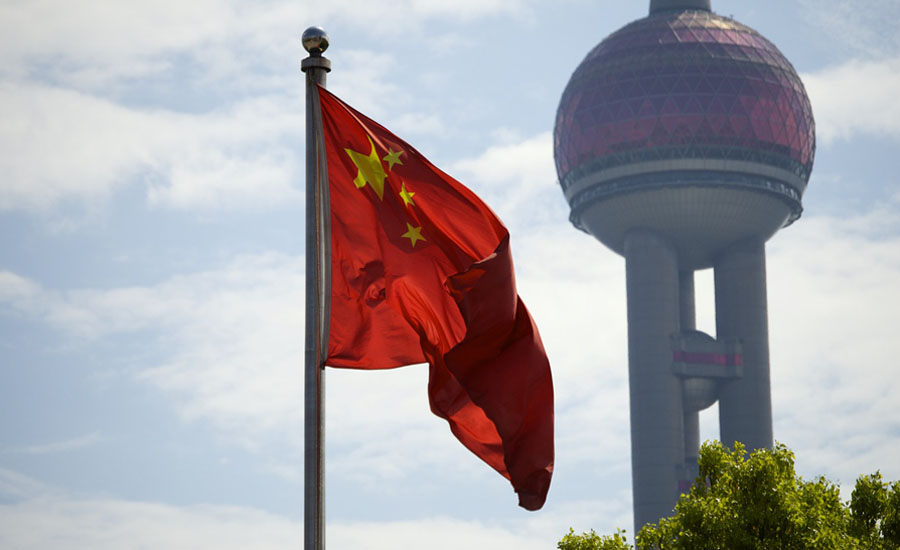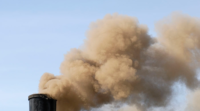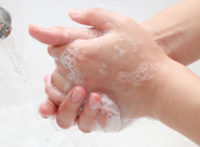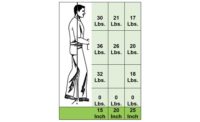Fighting dirty air: How Chinese citizens try to “wash their lungs”

Until December, 2015, the Chinese government had never issued a "red alert" for severe smog levels in any of its cities. But in December it issued two of them, closing schools, stalling freeways, and leading some environmental policy experts to believe that, with respect to air pollution, the recent alarms may represent a national turning point.
The most recent alert, issued December 25th, was applied to four major cities in addition to Beijing, where the concentration of PM2.5 in some parts of the city peaked at over 500 micrograms per cubic meter on December22. In Tainjing, south of Beijing, a red alert was triggered when levels surpassed 500.
Particulates measuring less than 2.5 microns in diameter can be inhaled deep into the lungs and absorbed into the bloodstream, contributing to heart disease, stroke, emphysema, and lung cancer. The World Health Organization recommends a maximum exposure of 25 micrograms per cubic meter over a period of 24 hours.
"The Chinese are growing less and less patient with these crises, which are now being more reported," said Jennifer Turner, director of the China Environment Forum at the Woodrow Wilson Center. "The 'code red' is a Band-Aid, but it also means that the government is coming out and saying, 'Yes, this is dangerous.'"
But as the red alerts are lifted, and cleaner air sweeps through the capital and other Chinese major cities, a new question emerges: If persistent air pollution has become a fixture of daily life, what can residents do to protect themselves?
"Now, people wake up, and they check their app to see what the air quality is," said Alex Wang, a law professor at UCLA working on environmental pollution in China. "Then, they decide whether to keep their kids inside, take them out to play, put on a mask, or turn on their air filter at home."
Berkeley Earth, a research organization focusing on climate change and emissions, estimated that air pollution in China contributes to the deaths of 1.6 million people every year.
"It is clear that you have a major growing health crisis of people dying early, and we also see chronic asthma increasing," said Turner. "And, you have the impact on children's lungs in the long term — compromised lung function is a major predictor of future health problems."
Zhou Yang, a research assistant at the China Environment Forum at the Woodrow Wilson Center in Washington DC, originally from Chengdu, China, was surprised to recently learn that clean, bottled air had gone onto the market.
"I read on the news this morning that a company had imported clean air from Canada — they just opened their products to Chinese market," said Yang. "All of the products sold out immediately."
The news was covering sales by Vitality Air, a venture that began in 2014. Currently, single cans and twin packs are sold from $16 to $46. In the wake of last week's smog alert, demand for the bottles skyrocketed. One of company's founders told the London-based newspaper The Telegraph that their first shipment of 500 bottles was sold in four days, and a crate containing 4,000 more is on its way to China.
While Yang is not placing any stock in bottled air as a solution to China's persistent air pollution, she has for years pushed her parents to buy better masks — such as the 3M-N95 model — that are better at blocking PM2.5. But these masks are uncomfortable, and her parents prefer the conventional, disposable cloth masks frequently seen in major cities.
The masks not very effective against the most dangerous particulate matter — Yang said they block a mere 18.3 percent of PM2.5 — but they are affordable. And that, she believes, partially accounts for their widespread use.
"The 3M-N95 costs more than 100 yuan, around 20 dollars, and people don't think it is worth it to spend so much on a mask," said Yang. These masks, while much more expensive, can trap closer to 85 percent of PM2.5.
Although masks have become the default means of mass protection against air pollution, air filters have become a cornerstone in residential and office buildings. But compared to a disposable masks, these filters are much more costly — running between 1,000 and 2,000 yuan, or $150 to $300.
In this sense, Wang explained, the ability of the Chinese to protect themselves from the worst effects of air pollution hinges on their earnings and ability to not only purchase available tools — such as masks and filters — but also their ability to relocate to cleaner areas.
"If you have the means, you might move, but most people don't have the means or the options to do that," said Wang. "There's certainly an environmental justice issue — people who have the means are able to avoid the harm."
But, he added, there are limits to how much protection a person can buy: "It is hard for even the wealthiest to escape the air pollution."
And despite the growing prevalence of air filters, environmental experts point to the fact that the indoor air quality in many parts of China are actually worse than the air pollution outside. This can give a false sense of security to those who buy air filters with the goal of keeping harmful toxins out; instead, they may serve to keep other, equally harmful toxins in.
"When people go inside, they are exposed to other toxins that don't get the attention they should," said Lucia Green-Weiskel, an environmental policy expert with the Innovation Center for Energy and Transportation in Beijing. "Buildings become cylinders of stagnant air, and they are not filtering out the toxins already in the environment."
While Green-Weiskel used to travel frequently to Beijing for work, now that she has two children, she is not willing to put their lungs at risk. "Five years ago, I would have brought my babies to Beijing — in a second," said Green-Weiskel. "Now, I can't put my children through that."
But back in Changdu, Yang's parents have little option but to cope with the pollution to the best of their ability — they have air filters at home and wear the simple, cloth masks during their commute to and from work. The high levels of smog mean that they no longer take what was once their usual walk after dinner, but they are fortunate enough to own a car, a privilege not enjoyed by many Chinese.
"Now, during the weekend they prefer to go to the countryside, into nature," said Yang. "As we say in China, to 'wash your lungs.'"
Source: VICE News https://news.vice.com
Looking for a reprint of this article?
From high-res PDFs to custom plaques, order your copy today!






